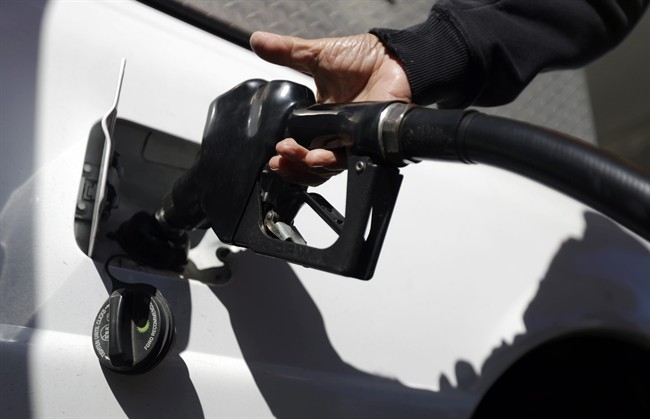A new study from the Atlantic Institute of Market Studies (AIMS) says that price controls on gasoline have hit Atlantic Canadians in their wallet every time they went to the pump — costing them $205 million more than they would’ve paid without government regulation.

The study was made public on Thursday.
Governments in the region began implementing these regulation in 1999 when Prince Edward Island first adopted the policy, with the three other provinces joining within the next decade.
“Gasoline price-control doesn’t exist anywhere else in Canada except in Quebec and the Atlantic region,” Dr. Marco Navarro-Génie, the author of the study, told Global News. “Doing it just because Quebec does it is no reason.”
The study has found that since 2006, Nova Scotians have paid $36 million due to province’s price regulations, while New Brunswickers have paid $15 million.
Citizens of Newfoundland and Labrador have paid $63 million since 2001 and P.E.I. have paid $91 million.
READ MORE: Why this is going to be the most expensive year for gasoline since 2014
Burden on citizens
According to the study’s findings, Nova Scotia offers the best evidence against government-controlled gas prices.
Consumers in Nova Scotia are paying up to 2.5 cents more a litre due to the province’s price regulation. It’s a scheme that Navarro-Génie says passes an unnecessary burden to consumers that stifles the economy.
“We need to measure policies on what they achieve, not what they intend to achieve.”
WATCH: RCMP allege Sundre-area man doused woman in gasoline and burned down home

It’s for that reason that Navarro-Génie says price regulation has unfairly targeted Atlantic Canadians.
For every dollar of price-regulated fuel someone in Atlantic Canada puts into their vehicle, 55 per cent of the income goes to the provincial and federal government.
The study finds that it’s a problem that could be solved by the market if not for government regulation.
“These government regulations are a solution looking for a problem, and the problem is that supply and demand causes significant differences between the price of today and the province of tomorrow,” said Navarro-Génie.
He used the shortage of gasoline in Nova Scotia two summers ago as an example.
When tankers were turned away in 2015 for having a different octane of gas, a shortage occurred and people rushed to purchase gas. Price regulations meant that gas stations couldn’t increase the price and they quickly sold out.
As a result of the study’s findings, AIMS recommends that the four Atlantic provinces review their systems of gasoline price regulation with a view to abolish them.




Comments